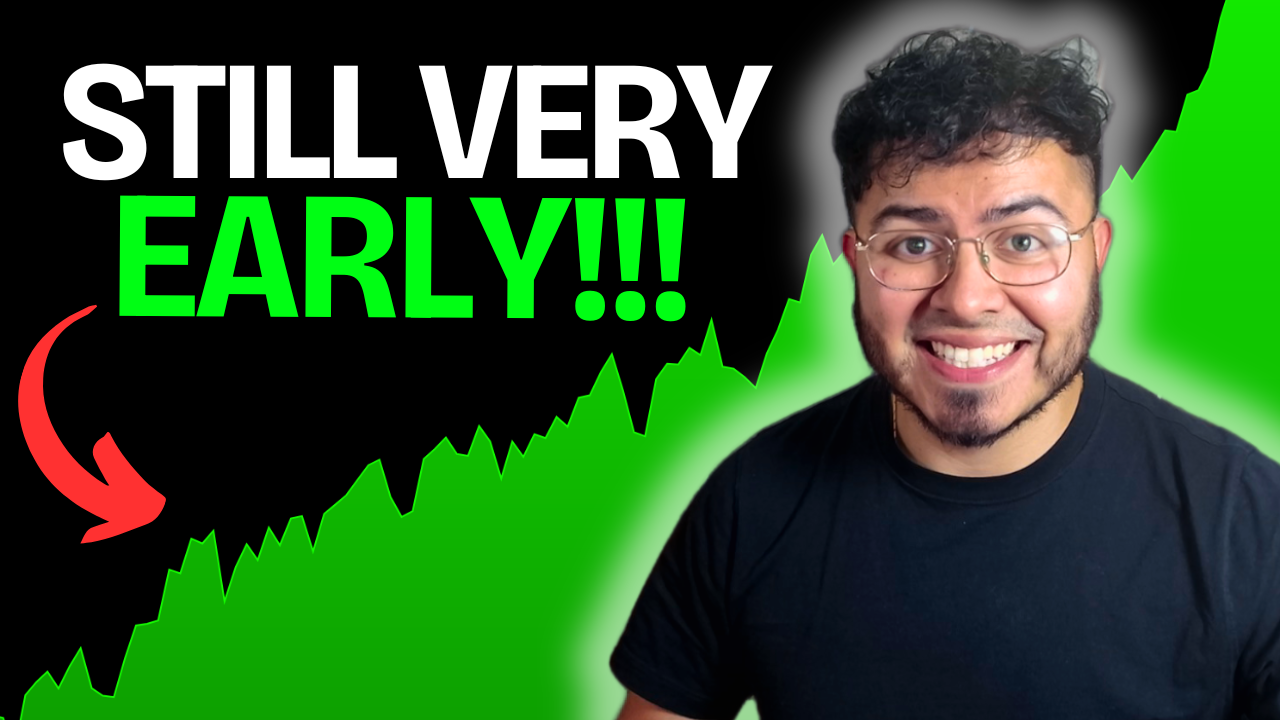Uber (UBER 1.78%), the biggest ride-sharing company in the world has released its first-ever earnings report since going public, and the market basically yawned.
In this week's episode of Industry Focus: Tech, host Dylan Lewis and Motley Fool analyst Evan Niu explain why there's not much in this report to be excited about. Tune in for the most important numbers and trends from the report, and find out why long-term investors should still be wary about this notoriously unprofitable ride-sharing company.
Also, the hosts talk about the slew of anticompetitive allegations being thrown at Apple (AAPL 0.71%) lately -- why so many companies and governments are turning up the pressure, how this could affect Apple's business, and what it means for the future.
A full transcript follows the video.
This video was recorded on May 31, 2019.
Dylan Lewis: Welcome to Industry Focus, the podcast that dives into a different sector of the stock market every day. It's Friday, May 31, and we're talking Uber's earnings results and some antitrust issues at Apple. I'm your host, Dylan Lewis, and I'm joined on Skype by fool.com's Evan Niu. Evan, what's going on?
Evan Niu: Not much. The kids are out of school. Their summer is beginning. It'll be a pretty busy couple of months.
Lewis: I'm guessing your home office went from being nice and quiet during the workday to maybe a little louder?
Niu: Yeah, it'll be a lot to keep up with, to try and get my work done. [laughs]
Lewis: What's the plan for that? Do you send them off to camp? Or are you like, "Hey, guys, go watch TV"?
Niu: It depends. This summer, we're going to do some camps. We also send them to Texas for a week usually to hang out with my parents. So we get some no-kid time.
Lewis: Nice. Well, I have no-kid time all the time, as does our producer, Austin Morgan. That may change in the future. But for now, no-kid time, and I plan on enjoying that myself.
Evan, we have our first look at Uber reporting as a publicly traded -- not soon to be public -- company, because they dropped earnings on Thursday. Of course, this is one of the big stories of the week because there was so much buildup for this IPO and the stock has just kind of hung out there after the company went public.
Niu: Yeah, the stock's been trading flat. It was up a little bit on the earnings results, but then it's coming back down today as the broader market's worrying about all this trade stuff with Trump. But it's not like a jumped a whole lot. There wasn't a whole lot to be excited about, in my opinion.
Lewis: I'm inclined to agree with you, Evan. A couple of highlights here from the results. Gross bookings, which is the activity that Uber facilitates, up 34% year over year to $14.6 billion. Revenue up 20% year over year to $3.1 billion. But you look at things on a net revenue basis, which strips out some of the driver incentives, and the business was up 14% year over year. Of course, still losing money. As a matter of fact, losing twice as much as they lost a year ago, with operating losses at about $1 billion. Is this more or less what you expected from this company this quarter, Evan?
Niu: Yeah. We all knew they'd keep just burning money. It's interesting, because this time, the net loss was also around $1 billion. We had talked about before, they have a lot of activity in terms of these investments, divesting, things like that, that are one-off items that can post these gains or losses, which is how they were profitable last year, like we talked about before. In this quarter, there wasn't any of that. Operating loss and net loss are pretty comparable in that case. I always look at the operating loss, because that's really the core of their operations and shows how much money they're losing.
Lewis: Yeah. You never want to be fooled by divestitures or any sales activity. You want to know exactly how the core business is doing. One of the pull quotes for me looking at management's commentary was from CFO Nelson Chai. He said, "We maintained stable regional ride-sharing category position in the quarter and started to see signs of less aggressive pricing by some ride-sharing competitors, which has continued into Q2 2019." It sounds like they're saying Lyft might not be as aggressively pricing in some markets. Do you buy that?
Niu: I think that is a lot of what's happening. They also mentioned they've seen a lot of other signs of competition being more focused on trying to compete on the brand and the product vs. the incentives. Direct competitor Xiaomi also mentioned, if you listen to the Lyft conference call, they mentioned that they're trying to compete on other areas other than price. I think that he's referring to a quote, I went back and looked, and for example, Lyft CFO Brian Roberts was saying how the industry is heading in the right direction and becoming "increasingly rational," and saying that their strategy is to win on experience, not price. I think that a lot of what's happening is, they're finally coming in terms of the fact that they've been pricing too low for so long, and they need to be bringing those prices up in order to become more sustainable, improve their cost structure. But at the same time, one of the challenges around that is also, if two giant companies are really dominating the space, both start to move pricing higher, you want to also make sure to avoid any allegations of price fixing or collusion, which is illegal. The CEO is like, "Obviously, we're operating independently," so he's kind of acknowledging that upfront. As long as they're not actively coordinating and colluding to increase pricing, and they're really just responding to market conditions and trying to improve their own cost structures, then they should be OK. I think that is what they need to do, and they're starting to show that.
Lewis: Yeah, you need to be particularly sensitive of that if you're in a duopoly style market like we have with Lyft and Uber.
One thing I was looking at, some of the line items from the results, and just trying to gut check that a little bit, was looking at their cost of revenue and the sales and marketing expenses. Those two figures give you a little bit of a sense of the cost of acquisition and the subsidy that they're giving both to drivers and to riders to bring those costs down, and the incentives that they're paying to drivers. In Q1 2018, those two categories combined for 70% of revenue. Now, a year later, they're 88% of the $3.1 billion the company booked in revenue. That seems kind of crazy to me.
Niu: Right. They really need to be pulling back these incentives. They're giving away too much money and not charging customers enough. Yeah, all that plays into the same idea, I think.
Lewis: Yeah. And the unfortunate thing is, you want people to be making a livable wage if they're going to be doing this, and so many of the criticisms of these companies recently have been, when you factor everything in -- insurance, all the miles you're putting on the car, possibly having to get it cleaned more regularly to be a driver -- the numbers don't look that great, and that's with them running a business that's struggling to be profitable. You wonder what might happen if they really start squeezing drivers even more than they already have.
Niu: Right. At the same time, I think there's also some really important lessons that you're seeing play out in New York City. New York City is obviously one of their huge markets, and there were some pretty meaningful changes that took effect in terms of regulations there during the quarter. Basically, they're required to pay out a minimum wage of at least like $17 after expenses. That's going to affect a lot of ride-hailing companies. They talked about the impacts directly. That directly resulted in pretty big price increases, which, of course, hurts demand for your product, and has really hurt their bookings growth in that market. At the same time, they're saying that market is still really resilient, and in terms of revenue dollars, still very strong. But I think it's a pretty good example of showing, this is obviously what happens when you raise prices. That's just in one big market. You can extrapolate what happens to the rest of the business if they have to keep raising these prices, because like you mentioned, a lot of these drivers are not making enough money, and they need to be paid better.
Lewis: Yeah. One of the things we talk about when we talk Uber and Lyft is the slight difference. Yes, they're both ride-hailing, ride-sharing businesses, but Uber has a little bit more optionality than Lyft. One of the things I enjoy in going through their results is seeing how these different segments play out. They have their ride-sharing business, which was up 9% year over year. They also have Uber Eats, which was up 89% year over year to just over $500 million. They also have an Other Bets revenue segment, which is where Freight business comes in at about $150 million.
On that, it would seem like Uber Eats is absolutely crushing it. But I think there needs to be a moment of pause because we have the revenue number from a business like that, and then we have the net revenue number from this business. And when you factor in the driver incentives and get down to that net revenue number for Uber Eats, the quarter came in about $240 million, which is up about 31%. So slow the roll on the applause for Uber Eats.
Niu: Right. I don't really like, in terms of the way that they account for their users on the platform, how they combine the Eats and the ride-sharing. Yeah, it's one platform, and you can use it in two different ways, but these are two fundamentally different businesses with different economics. I think it would be more useful for investors -- I mean, they do separate them in terms of revenue, but on the user side, I think some more metrics around the users and the usage would be helpful. They combine them right now in a way that makes it hard to parse through them.
I will also note that user growth did slow quite a bit. They only added about two million users on the whole platform during the quarter. That's definitely some pretty considerable deceleration.
Lewis: Yeah, I was actually surprised to see that ride-sharing was only up 9% year over year, given what seems like so many tailwinds pushing this business forward, whether its core ride hailing or all of the auxiliary things like the scooters that they have, and all these new mobility concepts that they're working on.
Niu: Right. And they're still burning crazy amounts of money. Their operating cash burn more than doubled to over $700 million. There are so many parts about this business I'm still not a fan of.
Lewis: Yeah. No matter how you slice it, Uber Eats is going to become a larger part of this business, which may or may not be good for the long-term economics of Uber. We didn't get a lot in the way of guidance, nothing to concrete. There was some discussion on margins, but really nothing in terms of a full-year look at where management thought that the company was going to go. I think some of that may be due to the pricing things that they've discussed. But we've seen this before with some newly public companies not wanting to give full-year or next quarter guidance when it comes to revenue or EBITDA or anything like that.
Niu: Right, and that's definitely not a good thing if you're an investor in this company. You want to get some visibility.
Lewis: We prefer clarity, Evan. [laughs] We prefer clarity.
All right, let's switch gears here and talk about Apple. Last week, we talked about an Apple supplier that was in some hot water with the FTC. I think this week, we're seeing something that's come to a head with Apple being under scrutiny for some anti-competitive practices and finally reacting to it.
Niu: Right. The scrutiny has been really intensifying around Apple. This week, they put up this new web page that basically defends their App Store practices. That move itself is not super meaningful, but it plays into this broader picture of what's been happening and playing out over quite some time, and the pressure is building and building and building. I think it's worth discussing the broader picture about how Apple's going to move forward.
They're pointing out that there is plenty of third-party apps that compete with the App Store, and it all really comes down to them competing on the platform alongside third-party developers that rely on them for distribution. But it's kind of a superficial argument. Yeah, of course, there's competition, but the question is not whether or not there's competition. It's, how is Apple competing?
Lewis: Right. There's a gate-kept idea of competition. Yes, there are a lot of other people who own Android devices and are not just using iOS and are not just in that ecosystem. So, yeah, as a percentage of overall market share, iOS might be relatively small. But if you're playing in iOS, you're dealing exclusively with Apple.
Niu: Right, and iOS is definitely much smaller than Android in terms of users, but it actually brings in a lot more revenue, in part because of the way Apple runs its store. There are benefits because Apple is very good in terms of things like safety, security, privacy, content, curation, secure payments, things like that. Whereas on Google Play, it's not uncommon for malicious apps like malware and spyware to be found on there. Google's vetting process is not as rigorous; they use a lot more automated tools, whereas Apple takes much more of a hands-on approach to app review.
Lewis: I think some of it also is a little bit of a reflection of where the customers are. You think about some more developed markets, specifically the U.S., where there's a lot of purchasing power and a lot of activity, iOS market share is a lot higher there. You go to more developing parts of the world, you tend to see more Android devices.
Niu: Right, definitely. Basically, at the heart of this issue is the fact that Apple has always taken a 30% cut of digital sales. In the case of subscriptions, that goes down to 15% after the first year. But 30% is a huge cut, and Apple doesn't really do that much to earn it. That can easily make or break a small developer's business in some cases. When you talk about larger businesses, it's a massive amount of money. For example, we talked about Netflix killing iTunes billing a few months back. There are third-party estimates that Netflix brought in $850 million on iOS in 2018, so Apple's cut is $130 million to $260 million, depending on how old those subscriptions are. At the low end, that's almost 10% of Netflix's entire operating income for the year. So, it can just be a huge thing.
And on top of the money, there's other ways in which the deck is stacked in Apple's favor. For example, Apple's apps and services get deep levels of system integration with iOS. You can't change default apps for browser, maps, among other categories, to third-party apps. They have all these guidelines around advertising and promotions that apply to third-party developers, but then Apple turns around and regularly violates its own guidelines. Whereas a developer, if they violate the guidelines, they risk getting their apps taken down. These things might seem minor, but if you're a third-party developer, they add up when you're already trying to compete with the richest company in the world that operates the platform that you rely on for distribution.
Lewis: Yeah, and there are very few companies out there that are of Netflix's stature and can say, "We know that our product is sticky enough that we don't need to be dealing with this through you guys. We're going to force people into doing it on our own platform, or somewhere else." Most people are so heavily reliant on the distribution that they get from the App Store that they just take it.
Niu: Right. And it's basically a monopoly. It's the only way an average consumer can get apps and content on their phone. You have to go through Apple. There's so much power that it's arguably a monopoly.
And this is only going to get worse over time because Apple is continuing to launch more and more services as part of its Services push. They're about to get into video streaming with Apple TV+. They're getting into subscription gaming with Apple Arcade. Entertainment and games are among the biggest and most popular app categories. The more stuff they release, the more they're going to start competing with other people. Think about, over the next three to five years, what else is Apple going to introduce? The number of developers they compete with, it's just going to keep getting bigger and bigger. It's not going to get any easier anytime soon.
Lewis: And the reason for that push for Apple is the fact that they need to find growth, and Services has been such a reliable source of growth for them, even as they've seen hardware sales plateau a little bit. So, as a shareholder, it's particularly concerning to hear that, oh, this really high-margin golden goose that's just kept chugging along as the business has struggled could come under some more scrutiny.
Niu: Right, exactly. There's been a lot happening in the past few months. And that's, I think, where it gets really interesting. For example, Spotify, which has always complained about this stuff, made a formal antitrust complaint in the European Union in March. The Dutch regulators announced they're opening an investigation into Apple's practices a month later. There are now a bunch of politicians that are calling for big tech companies to be broken up as it relates to Apple, saying, "You can't compete on your own platform and operate at the same time."
There's another big one this month -- the U.S. Supreme Court ruled that an antitrust suit that was filed by consumers way back in 2011 could move forward. That suit alleges that Apple has a monopoly in app distribution, and Apple abuses that power, and that leads to higher prices for consumers. It's worth noting that the Supreme Court didn't rule on the underlying merit of the case itself, just basically said it's a valid case that can move forward. So the outcome of that case could potentially have major implications, like force them to change their business model, which is one of the most profitable segments, as you mentioned.
There's a lot going on on this antitrust front. It could potentially be a big risk to Apple. It's something that investors absolutely need to be keeping an eye on.
Lewis: Yeah. It's one of those things where unfortunately, we have more questions than answers when it comes to this topic. It's squishy, it's gray, and you're never really sure how regulators might act. It's clear, though, we're in a period where big tech is under a little bit more scrutiny, under the microscope, and might have to answer for some business practices they've enjoyed for quite some time.
Niu: Right. I don't know what the resolution of this whole looks like. Apple's stuck in this place. Revamping the model is a huge undertaking. They like it as it is, but it obviously has a lot of really fundamental anti-competitive concerns. It's a really tricky situation for them to be stuck in. I'm looking forward to seeing how they figure it out.
Lewis: Yeah. I'm sure will report on it as they do. Evan, thanks for hopping on today's show!
Niu: Thanks for having me!
Lewis: Listeners, that does it for this episode of Industry Focus. If you have any questions or you want to reach out and say hey, you can shoot us an email over at [email protected], or you can tweet us @MFIndustryFocus. If you want more of our stuff, subscribe on iTunes, or you can catch videos from the podcast over on YouTube. As always, people on the program may own companies discussed on the show, and The Motley Fool may have formal recommendations for or against stocks mentioned, so don't buy or sell anything based solely on what you hear. Thanks to Austin Morgan for all his work behind the glass! For Evan Niu, I'm Dylan Lewis. Thanks for listening and Fool on!







